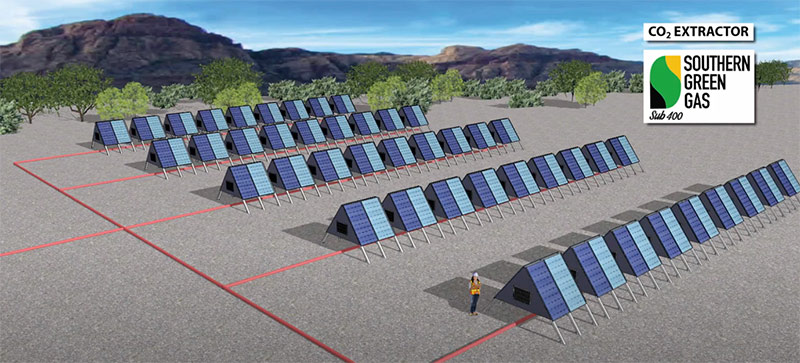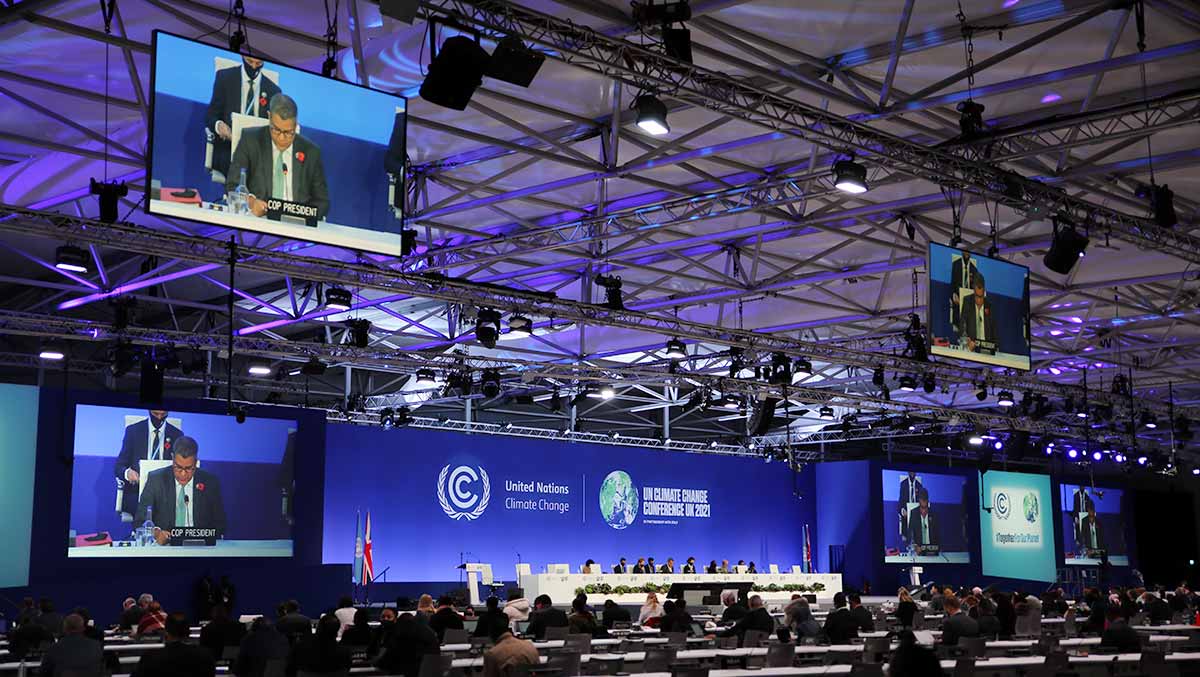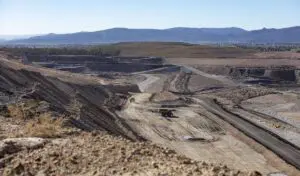Wednesday in Glasgow represented somewhat of a turning point for the negotiations, with a draft agreement being released by the presidency of COP26, outlining a range of potential commitments that could emerge from the COP26 talks.
The United States and China also released a rare joint statement, committing the two countries to ramp up their cooperation on climate change, with a strong emphasis on increasing their respective actions within the next decade.
Draft text calls for ‘accelerated coal phase out’, stronger 2030 targets
COP president Alok Sharma released a number of draft decisions on Wednesday, setting somewhat of a baseline for what decisions may emerge from the talks, including a potential commitment to phase out the use of coal and end government subsidies on fossil fuels.
To provide a taste of what is being currently being considered by negotiators in Glasgow, the draft decision text includes the following proposals:
- a call for countries to accelerate the phasing-out of coal and subsidies for fossil fuels;
- recognition of the need to reduce global carbon dioxide emissions by 45 per cent by 2030 relative to the 2010 levels;
- urging countries to revisit and strengthen their 2030 targets, as necessary to align with the Paris Agreement temperature goal by the end of 2022
- an invitation for the UN secretary general to convene another ‘world leaders summit’ in 2023 – focused on 2030 targets
While the proposed text would not bind countries to the phase-out of coal and fossil fuel subsidies and does not set a timeline, it would be the first time such a call has been included in a formal agreement emerging from UN climate talks.
The text also proposes to recognise that global carbon dioxide emissions will need to be cut by at least 45 per cent by 2030 to keep a 1.5 degree limit on global warming. Again, while the text would not bind countries to such a target, it could be used to pressure countries like Australia to lift their interim targets to at least that level.
The draft text proposes to re-assess country’s 2030 targets as early as next year, with negotiators recognising that a significant ambition gap still remains to keep global warming within safer limits.
The draft decision is far from settled and will be subject to ongoing discussions, as well as efforts from countries that strongly oppose sections of the draft text.
This means that language around a phase-out of fossil fuels could ultimately be scuttled by countries like Australia or Saudi Arabia.
Concerns draft text won’t deliver for developing countries.
While the draft texts include some unprecedented language around the phase-out of fossil fuels, developing countries have raised concerns around the lack of detail about other critical messages including the provision of financial support for vulnerable countries to respond to the impacts of climate change, describing the draft text as “unbalanced”.
Chair of the Alliance of Small Island States, Antigua and Barbuda diplomat Aubrey Webson, said the COP26 talks needed to reach a meaningful agreement to progress work towards the creation of a ‘loss and damage’ mechanism that would compensate vulnerable countries for the damage caused by climate change.
“The text provides a basis for moving forward but it needs to be strengthened in key areas in order to respond to the needs of the most vulnerable, particularly on finance,” Webson said.
“We won’t get the ambition on emissions we need for 1.5 C, if we don’t scale up the provision of finance, and this includes the long overdue recognition of a separate and additional component for loss and damage.”
United States and China issue rare joint statement on climate co-operation
In a positive development, the world’s two largest emitters issued a rare joint statement committing the United States and China to undertake further cooperation to increase their respective ambition on addressing climate change, with a particular focus on ramping up action in the 2020s.
The statement includes a commitment from the United States to reach “100% carbon pollution-free electricity by 2035” and for China to “phase down coal consumption” in its next five-year plan starting in 2026 and “best efforts to accelerate this work”.
The two countries also agreed to convene a new “Working Group on Enhancing Climate Action in the 2020s” between the two countries that will meet regularly ‘to address the climate crisis’, including the sharing of policies and technology.
“The United States and China… are committed to tackling it through their respective accelerated actions in the critical decade of the 2020s, as well as through cooperation in multilateral processes, including the UNFCCC process, to avoid catastrophic impacts,” the statement says.
“The United States and China welcome the significant efforts being made around the world to address the climate crisis. They nevertheless recognise that there remains a significant gap between such efforts, including their aggregate effect, and those that need to be taken to achieve the goals of the Paris Agreement. The two sides stress the vital importance of closing that gap as soon as possible, particularly through stepped-up efforts.”
Much has been made of the absence of Chinese president Xi Jinping in Glasgow, with some interpreting the lack of engagement from the head of state as Chinese disinterest in the issue of climate change.
But the joint statement between the US and China could emerge as one of the most meaningful outcomes of COP26.
Here is the “U.S.-China Joint Glasgow Declaration on Enhancing Climate Action in the 2020s” being jointly released right now at #COP26. It’s a timely acknowledgement by the two big emitters that more needs to be done, of their responsibility to do more & how cooperation can help. pic.twitter.com/lH0esItggp
— Thom Woodroofe (@thomwoodroofe) November 10, 2021
Australian tech wins award in Glasgow
Students from the University of Sydney have taken out a major innovation prize awarded at the COP26 talks for their ‘direct air capture’ technology for greenhouse gas removals.
The students, who have developed a method of extracting carbon dioxide from the atmosphere that can be powered entirely by solar power, secured the US$250,000 (A$338,000) prize, awarded by Tesla chief Elon Musk as part of the Sustainable Innovation Forum in Glasgow.
The student team was overseen by USYD school of chemistry professor Deanna D’Alessandro and led by PhD student Eleanor Kearns.
“Removing CO2 from the atmosphere is one of the greatest environmental challenges of our time, and Australia is uniquely positioned to deliver the solution. It has around 300 million hectares of non-arable land with high solar intensity,” D’Alessandro said.

Australia wins ‘first place’ fossil of the day award
For the record, international environment groups awarded Australia its fifth ‘fossil of the day’ award during COP26, this time the ‘first place’ award for the Morrison government’s announcement that it intends to use the Clean Energy Finance Corporation to channel an additional $500 million into carbon capture and storage technologies.










